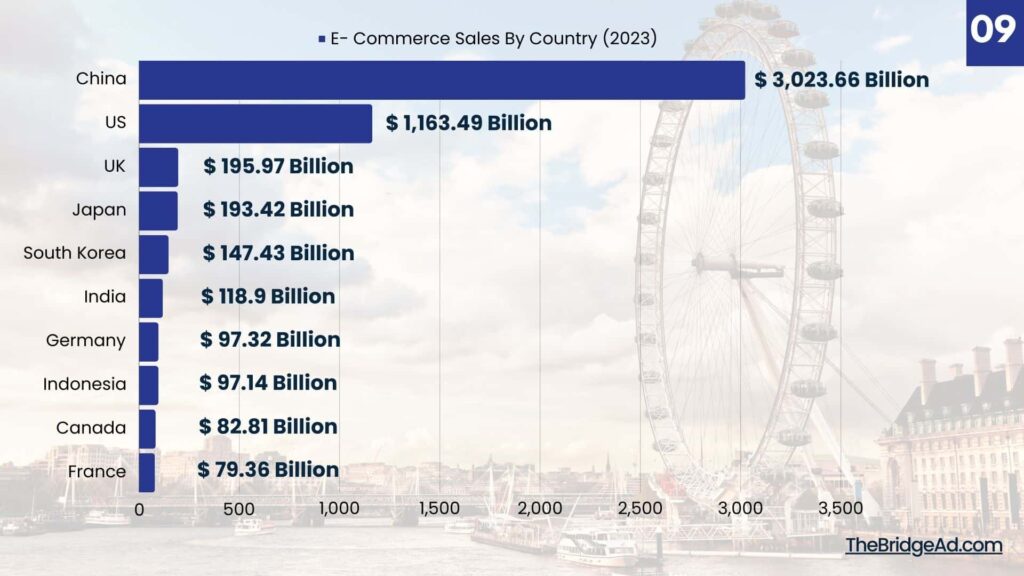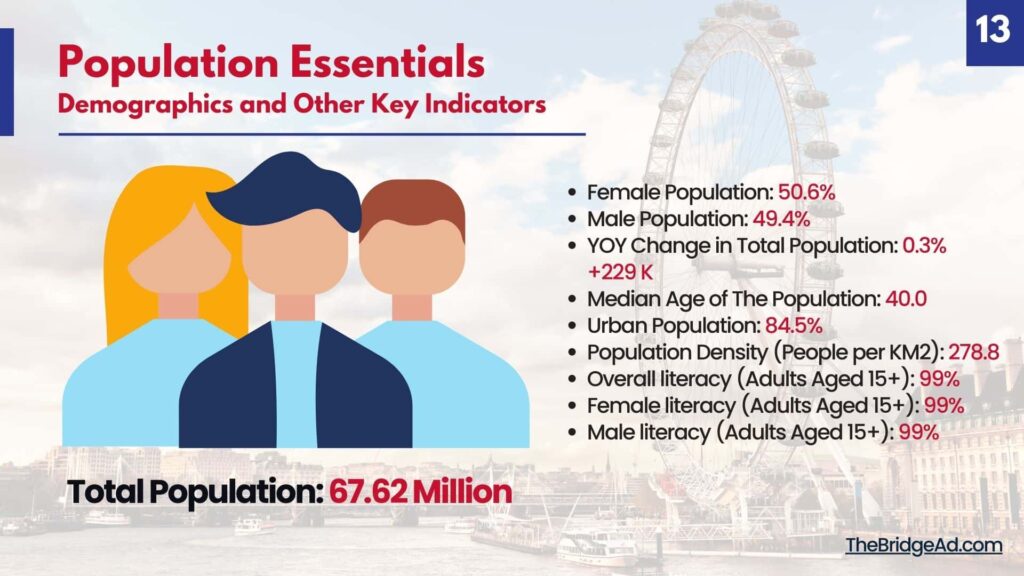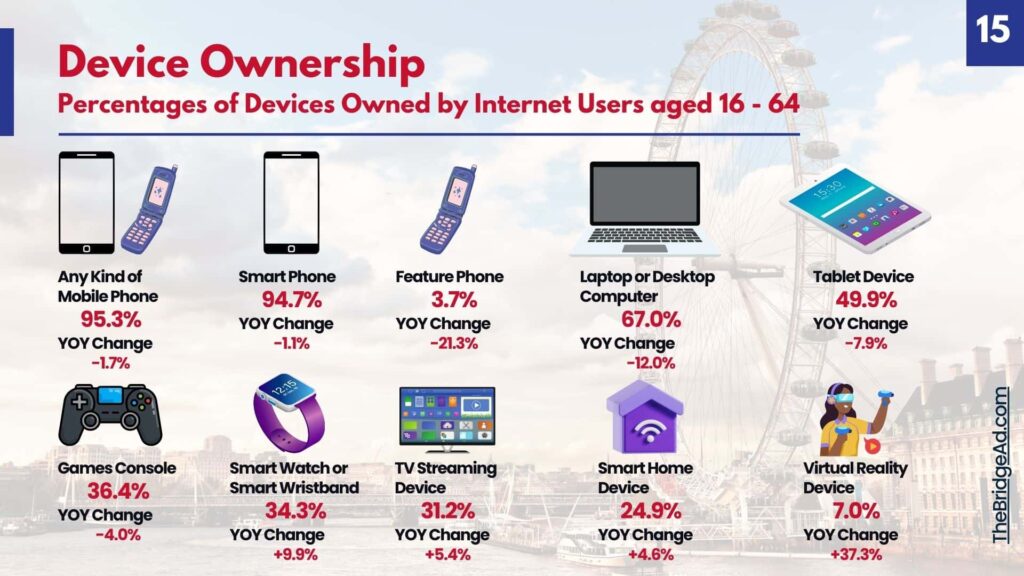
The e-commerce industry is one of the fastest-growing and most exciting sectors in the modern economy. With more and more consumers turning to the Internet to purchase goods and services, the potential for profit in the e-commerce space is immense.
In the dynamic global e-commerce landscape, the United Kingdom stands out as a beacon of lucrative opportunities for astute investors. As we delve into the top 5 reasons you should consider investing in the UK E-commerce market, we’ll uncover the unique advantages, market trends, and strategic considerations that make it an ideal destination for businesses aiming for sustained growth.
1) The Resilience of the UK E-commerce Market
The UK e-commerce market has exhibited remarkable resilience, even in the face of global economic uncertainties. The pandemic accelerated the shift toward online shopping, solidifying the e-commerce sector’s importance in retail. In this section, I will provide a detailed analysis of the factors contributing to this resilience, including the surge in consumer demand for online services, changes in shopping behavior, and the adaptability of e-commerce businesses to evolving market conditions.
The Impact of the Pandemic:
The unprecedented challenges posed by the pandemic acted as a catalyst for the e-commerce industry. Consumers, confined to their homes, turned to online platforms for their shopping needs, creating a surge in demand that has persisted even as restrictions ease.
Economic Stability and Consumer Confidence:
Despite economic uncertainties, the UK’s stable economic foundation has fostered consumer confidence. Understanding the interplay between economic stability and consumer spending patterns is crucial for investors seeking to capitalize on the resilience of the e-commerce market.
Technological Advancements:
Ongoing technological advancements, such as the integration of artificial intelligence and enhanced user experiences, have contributed to the sector’s resilience. This section will explore how technology has played a pivotal role in shaping the industry’s trajectory.
All those aspects made The United Kingdom hold the position as the third-largest e-commerce market globally.
Ranking just behind China and the United States, the UK boasts the third-largest e-commerce market worldwide. Consumer e-commerce has become a significant force, constituting 36.3% of the total retail market in the UK as of January 2021.
Projections indicate a continuous upward trajectory, with e-commerce revenue anticipated to surge to $285.60 billion by 2025.

2) Expansive Consumer Base:
Investing in the UK E-commerce market opens doors to an expansive consumer base with diverse preferences and purchasing behaviors. The UK’s population, known for its tech-savvy and digitally connected nature, constitutes a vibrant marketplace for a wide array of products and services. Understanding the nuances of the UK consumer landscape is crucial for tailoring strategies that resonate with target audiences.
Furthermore, demographic insights unveil trends related to age groups, income levels, and regional preferences. Analyzing these factors provides investors with a comprehensive understanding of their potential customer base, facilitating the development of targeted marketing strategies.
The key digital figures for the UK in 2022/2023
In 2022/2023, key digital metrics for the UK include a population of 67.7 million, 71.8 million mobile phone connections, around 66 million internet users, and an active social media user base of 57 million.
These figures highlight the extensive digital connectivity and engagement within the UK’s population.

3) Emerging E-commerce Trends:
Embracing forward-thinking investments necessitates a profound comprehension of the evolving trends shaping the UK E-commerce landscape. The pervasive influence of mobile commerce (m-commerce) is reshaping consumer interactions with online platforms, underscoring the indispensable role of smartphones in the modern shopping experience.
In tandem with this, the ascent of voice commerce, facilitated by virtual assistants and smart speakers, adds another layer to the evolving E-commerce terrain. As voice-activated technologies become increasingly prevalent, businesses are presented with opportunities to innovate and seamlessly integrate these features into their E-commerce strategies.
Furthermore, augmented reality (AR) is making notable strides within the E-commerce sector. Enabling consumers to visualize products in their real-world environment prior to making a purchase, AR elevates the online shopping experience to new heights. Investors looking to maintain a competitive edge are well-advised to explore the diverse applications of AR within their product offerings.
In conclusion, the proliferation of these cutting-edge devices not only transforms the E-commerce landscape but also provides business owners with powerful tools to precisely target and engage consumers in an ever-evolving digital marketplace.

4) Robust E-commerce Infrastructure
The UK’s e-commerce landscape stands on a foundation of excellence, featuring a sophisticated infrastructure that plays a pivotal role in shaping the industry’s dynamics. A closer look reveals an advanced logistics network, ensuring swift and reliable product deliveries. Streamlined supply chain networks further contribute to the efficiency of operations, facilitating timely restocking and minimizing delays.
One of the key components of this robust infrastructure lies in the reliable payment gateways that underpin every transaction. These gateways are designed to provide a secure and seamless payment process, fostering trust between businesses and consumers. As we delve into this section, we will explore the intricate details of how these elements work in tandem, creating an environment conducive to positive e-commerce experiences.
From the moment a customer places an order to the successful delivery of the product, the e-commerce infrastructure in the UK ensures a smooth journey. This section aims to unravel the layers of this infrastructure, showcasing how businesses leverage these capabilities to thrive in a competitive market. By understanding the intricacies of the UK’s e-commerce foundation, entrepreneurs and investors gain valuable insights that can inform strategic decisions and contribute to long-term success in the dynamic world of online commerce.

5) Regulatory Landscape and Investor-Friendly Policies
In the ever-evolving landscape of e-commerce, understanding and navigating regulatory frameworks are paramount for investors seeking a secure and compliant business environment. The UK’s e-commerce sector operates within a well-established regulatory landscape, designed to ensure transparency, protect consumer rights, and foster fair business practices.
This section delves deep into the legal intricacies governing e-commerce operations in the UK. One cornerstone of the regulatory landscape is the General Data Protection Regulation (GDPR), which safeguards the privacy and data rights of consumers. Investors will explore the implications of GDPR on e-commerce businesses, gaining insights into data protection standards and compliance requirements.
Consumer protection regulations play a pivotal role in shaping the relationship between businesses and their clientele. By examining these regulations, investors will grasp the mechanisms in place to uphold consumer rights and maintain a high standard of service within the e-commerce sphere. Additionally, this section sheds light on the role of regulatory bodies overseeing the industry, providing investors with a roadmap to navigate the regulatory landscape.
A key focus is on how these regulations contribute to a business-friendly environment, fostering trust and ethical practices. By understanding the legal framework and investor-friendly policies, entrepreneurs and investors can align their strategies with industry standards, ensuring the longevity and success of their ventures in the vibrant UK e-commerce market.

Conclusion:
In conclusion, the UK E-commerce market stands as a testament to resilience, driven by its ability to adapt to challenges and maintain sustained growth. The expansive consumer base, with its diverse preferences and behaviors, provides a lucrative landscape for businesses looking to capture the attention of a wide audience.
As we’ve explored the emerging trends, it is evident that the market is not static; it evolves with technological advancements and changing consumer expectations. Embracing these trends becomes a strategic imperative for businesses aiming to stay ahead in a competitive environment.
A robust e-commerce infrastructure further enhances the market’s appeal. The efficiency of logistics, reliable payment gateways, and streamlined supply chains contribute to a seamless operational environment, fostering positive experiences for both businesses and consumers.
Crucially, the regulatory landscape and investor-friendly policies underline the commitment to ethical and compliant business practices. The UK’s adherence to data protection laws, consumer rights, and fair trade practices positions it as a trustworthy environment for e-commerce ventures. Investors are not only supported by a legal framework but also benefit from a business-friendly ecosystem that encourages innovation and ethical conduct.
In essence, the resilience, expansive consumer base, emerging trends, robust infrastructure, and investor-friendly policies collectively position the UK as a prime destination for those seeking success in the dynamic realm of e-commerce. As we navigate the evolving landscape, these factors form the foundation for sustainable growth and prosperity in the UK E-commerce market.
For a deeper understanding of the UK market—covering demographics, consumer behaviors, and trending products—grab your copy of the UK E-commerce Mastery Report. It’s your key to unlocking valuable insights for smarter business decisions and successful ventures. Download now for a comprehensive guide to the UK E-commerce scene.




